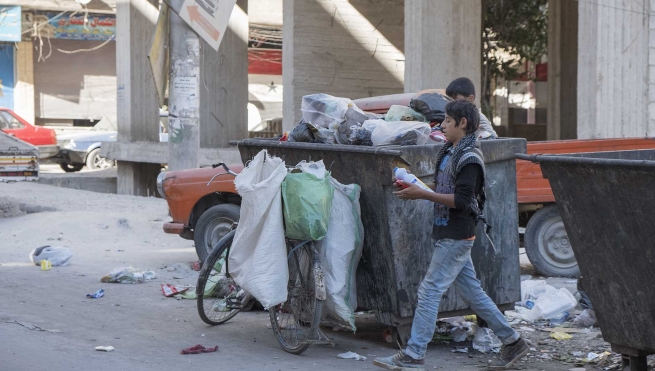SYRIA: Families face economic hardships and a lack of resources during coronavirus pandemic

(MissionNewswire) There are have been 372 cases of COVID-19 diagnosed and 14 people have died to date in Syria, but as in other countries the data is not completely transparent, and the virus has been increasing in recent weeks. According to the World Health Organization, a large-scale outbreak could be catastrophic for the population because half of the hospitals were destroyed by the war, and more than 50 percent of medical personnel were killed during the conflict or have left the country.
If the virus were to spread to refugee camps, it would be impossible to contain it because physical distancing is unattainable. For this reason, more than 200,000 people are leaving the camps to look for other temporary shelters or to return to their old houses, almost all completely destroyed by the bombings. The drastic economic deterioration is increasing. The main concern for the whole population is economic instability and the lack of basic necessities.
Samar is a 51-year-old woman who lives in the Alidan area in Aleppo with three children aged 20, 18 and 15 years. Her husband passed away in 2016. She doesn’t work, and the family’s only source of income is money her sons earn. All three were working in a restaurant, but lost their jobs when the restaurant closed at the beginning of the pandemic.
At the beginning of June, the government allowed activities to resume, but the country is now collapsing. The devaluation of the currency has caused a rise in the prices of all goods. This impacts all families—but especially families like Samar’s who have almost no income to survive.
Rashad, who owns a small dairy products distribution shop, is a beneficiary of the youth entrepreneurship support project created by the Salesians in Aleppo and Damascus. He was a student at the Don Bosco Center in Damascus. Rashad is married and has two children. Thanks to the entrepreneurial support project, he had managed to start his small business, which yielded fair earnings until all shops were forced to close.
The closure of his business was a serious challenge and recovery has not been easy. The drastic change in prices has become a huge problem because it means that customers ultimately have low purchasing power. Rashad cannot keep prices constant because with a day’s earnings he cannot buy products from suppliers for the next day.
Lockdown restrictions have brought vulnerable Syrian households closer to the brink of financial ruin. Tens of thousands of jobs have been eliminated. Meanwhile, the foreign support that sustained many Syrian households is drying up. Significant wage loss, currency devaluation, rising unemployment and a permissive environment for cross-border smuggling are all likely to amplify needs and place Syrian households under greater economic stress, especially as costs of goods continue to outstrip purchasing power.
Salesian missionaries operate three centers in Kafroun and the particularly high conflict areas of Aleppo and Damascus. Salesian centers continue to meet the needs of their communities through the distribution of food, economic aid and scholarships to help young people continue with their schooling, but there have been some interruptions as a result of the pandemic and lockdown. Salesians are resuming work as they are allowed in the country.
###
Sources:
ANS Photos (usage permissions and guidelines must be requested from ANS)
ANS – Syria – The lives of Samar, Rashad … And millions of Syrians are still in danger
Salesian Missions – Syria
Any goods, services or funds provided by Salesian Missions to programs located in this country were administered in compliance with applicable laws and regulations, including sanctions administered by the U.S. Department of Treasury’s Office of Foreign Asset Control.





